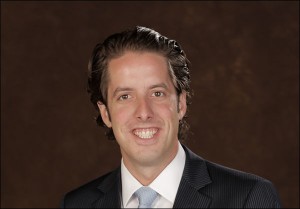ON THE DEFENSIVE: Criminal justice system powerless against addiction
By: Anthony Cotton//February 6, 2014//
ON THE DEFENSIVE: Criminal justice system powerless against addiction
By: Anthony Cotton//February 6, 2014//

There is a crisis in this country. Considerable numbers of otherwise good people have become addicted to opiates.
That particular type of addiction is staggering in its intensity. And unfortunately, the pattern of addiction is the same, time and time again.
Often, it begins at the doctor’s office — a woman has delivered a child, a factory worker has suffered an injury, a teenager has gone through surgery. Doctors prescribe opiates to control the pain. Doctors have unfettered discretion to choose the strength and type of prescribed medication. The patient has little idea of what is in store.
Many times, the patient becomes addicted before the prescription has run its course. The opiate addiction is worse than anything that person could imagine, and it soon begins to take over that person’s life.
If the doctor cuts off the prescription, the person may resort to heroin, which is cheaper and can be snorted. Heroin, because it is unregulated, differs in its potency from dose to dose. Because of that, it is a matter of time before the addict overdoses.
Opiate addictions cut across every socioeconomic category. Judges, defense attorneys and prosecutors can tell dozens, if not hundreds, of stories about successful people losing everything because of the addiction.
As a state, we have done little to stem the epidemic because we still classify the addiction as a legal problem, rather than a medical one.
The criminal justice system, with confinement as its traditional form of punishment, is not equipped to handle the rising tide of addiction. We cannot jail the addiction out of a person, and we cannot threaten a person into sobriety.
Heroin possession, regardless of the quantity, is a felony under Wisconsin law. We accomplish absolutely nothing as a society by making felons out of addicts.
That stigma does nothing to solve the underlying addiction. It is as sensible as deciding that cancer patients should be hauled into the criminal justice system and given a felony label because they haven’t “addressed their problem.”
A person does not choose to get sucked into an all-controlling opiate addiction. And once they are addicted, there is almost no safety net in this state on which they can rely.
Jail is the worst place for an opiate addict to go through detox. Yet, as opiate addiction has exploded in the state, that is the only institutional environment where a poor person can go to get clean.
Is it logical as a society to wait until a person commits a criminal act before we provide an institutional environment in which to get clean?
Deterrence and punishment are laudable goals of the criminal justice system but do nothing to prevent addiction. We need to take this crisis seriously, and we need to change our priorities.
Intensive treatment programs need to money, and it should come directly from the county jail and prison budgets.
We can talk about opiate addictions all we want, but we will be doomed to failure if we do not change our mindset and fiscal priorities.
Legal News
- Former law enforcement praise state’s response brief in Steven Avery case
- Eric Toney announces re-election bid for Fond du Lac County District Attorney
- Former Wisconsin Democratic Rep. Peter Barca announces new bid for Congress
- Republicans file lawsuit challenging Evers’s partial vetoes to literacy bill
- More human remains believed those of missing woman wash up on Milwaukee Co. beach
- Vice President Harris returning to Wisconsin for third visit this year
- Wisconsin joins Feds, dozens of states to hold airlines accountable for bad behavior
- Trump ahead of Biden in new Marquette poll
- Bankruptcy court approves Milwaukee Marriott Downtown ‘business as usual’ motion
- New Crime Gun Intelligence Center to launch in Chicago
- Arrest warrant proposed for Minocqua Brewing owner who filed Lawsuit against Town of Minocqua
- Wisconsin Supreme Court justices question how much power Legislature should have
WLJ People
- Power 30 Personal Injury Attorneys – Russell Nicolet
- Power 30 Personal Injury Attorneys – Benjamin Nicolet
- Power 30 Personal Injury Attorneys – Dustin T. Woehl
- Power 30 Personal Injury Attorneys – Katherine Metzger
- Power 30 Personal Injury Attorneys – Joseph Ryan
- Power 30 Personal Injury Attorneys – James M. Ryan
- Power 30 Personal Injury Attorneys – Dana Wachs
- Power 30 Personal Injury Attorneys – Mark L. Thomsen
- Power 30 Personal Injury Attorneys – Matthew Lein
- Power 30 Personal Injury Attorneys – Jeffrey A. Pitman
- Power 30 Personal Injury Attorneys – William Pemberton
- Power 30 Personal Injury Attorneys – Howard S. Sicula








